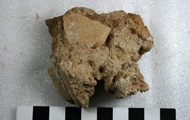Photo: scitechdaily.com
Ostrich egg shell
–
–
New information comes from the analysis of an ancient ostrich egg shell. The researchers figured out what the animals ate and thus understood what the climate was like.
An unusual study by scientists from the University of Exeter has shed a completely different light on information about climate change. It showed that some areas of South Africa that are dry and sparsely populated today, 250,000-350,000 years ago, were wetland and herbaceous. Writes about it SciTechDaily.
The researchers came to this conclusion thanks to the analysis of isotopes and amino acids from the shell of ostrich eggs, which were found at the site of the early Middle Stone Age.
The work of scientists showed that “after a period of balanced climate and environment, cooler and wetter weather 200,000 years ago gave way to increasing aridity.”
“The Bundu Farm, where the eggshells were dug, is a remote farm 50 km from the nearest town, located in a dry, semi-desert environment that contains a small flock of sheep,” added the scientists.
Recall climate change could lead to a pandemic COVID. This is the conclusion reached by scientists at the University of Cambridge.
Climate change. The reason for the appearance of the coronavirus
News from Correspondent.net in Telegram. Subscribe to our channel https://t.me/korrespondentnet
– .

:quality(80)/cdn-kiosk-api.telegraaf.nl/06d4008a-e31f-11eb-bfef-0218eaf05005.jpg)
